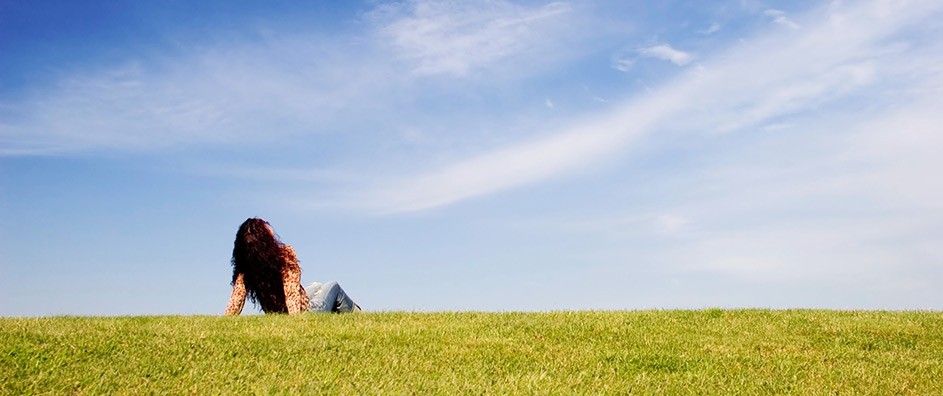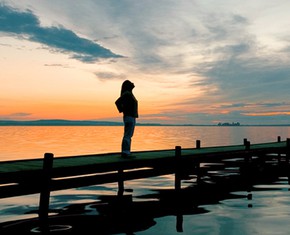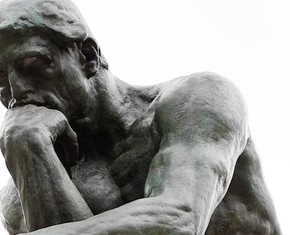The views expressed in our content reflect individual perspectives and do not represent the authoritative views of the Baha'i Faith.
I awoke at 5:30 AM, precisely 37 minutes before the official sunrise time in Haiti. I had 37 minutes to prepare and to eat breakfast in order to begin a sunrise-to-sunset fast–but that didn’t quite happen. Yes, my breakfast took longer to prepare than I had anticipated when I began. Yes, the puppy needed to go outside so that the kitchen floor didn’t become a latrine. Yes, I have hyperglycemia and have been traveling and suddenly have been hit with horrible edema as a result of that travel. But these are excuses and I know it (Twelve-Step friends, please roll your eyes at that “yes, but…”). Simply put, my fears of feeling physically weak and symbolically powerless won, and my will (or my surrender?) lost.
Baha’is shouldn’t fast, according to the Baha’i teachings, when they’re sick or traveling. I know that, but as a new Baha’i I still want to partake of this devotional practice I’ve heard so much about.
 I have this idealistic vision of fasting from the stories told to me by friends. “It is so beautiful. I pray and meditate instead of eating lunch.” And another, “It’s as if all the material things of life become less important and you focus on God.” Fasting is detachment from material things, a detachment from conventions of time and culture that distract us from reflecting on matters of the spirit. It is meant to carry us out of the “things” man has created in this world and into a place where we seek connection to a higher power. Thus, I imagined an aura of bliss surrounding me, taking me into the depths of my soul where everything would be clear and simple. But again, that didn’t quite happen.
I have this idealistic vision of fasting from the stories told to me by friends. “It is so beautiful. I pray and meditate instead of eating lunch.” And another, “It’s as if all the material things of life become less important and you focus on God.” Fasting is detachment from material things, a detachment from conventions of time and culture that distract us from reflecting on matters of the spirit. It is meant to carry us out of the “things” man has created in this world and into a place where we seek connection to a higher power. Thus, I imagined an aura of bliss surrounding me, taking me into the depths of my soul where everything would be clear and simple. But again, that didn’t quite happen.
“It is a duty,” one friend said, and that, in sum was the beginning and end of why he fasted. Fasting reminds us of the struggles in life, the preciousness of every breath, the sacrifices others have made. But, I hear my inner adolescent say, life is already hard! (and it would like to add an expletive 4-letter-word to that exclamation). I am already struggling. The news carries stories of yet another murder that occurred just about 3 miles from where I slept as this fasting period began. I watch precious, young lives ended too early as a result of treatable illnesses. I bounce over dirt roads beyond the reach of the UN Peacekeeping forces that, yes, from time to time, we realize still have a purpose here, in order to arrive in remote areas to work. I have 200+ people relying on my work, so they can have a safe place to go. But really? Are they relying on me? “Park that ego at the door,” the voice of my older self says. “You,” it reminds me, “are serving the work you do, not the other way around. It is not about you.”
Fasting. Could it be that it is about “not about you”?
Attach not thyself to anything unless in it thou seest the reality of God. – Abdu’l-Baha, Divine Philosophy, p. 135
Fasting is the cause of awakening man. The heart becomes tender and the spirituality of man increases. This is produced by the fact that man’s thoughts will be confined to the commemoration of God, and through this awakening and stimulation surely ideal advancements follow. – Abdu’l-Baha, Star of the West, Volume 3, p. 305.
Could letting go of eating and drinking during daylight hours (it sounds so simple when I write it like that) free me to look to God instead of to myself? Could it open me to seeing “the reality of God” within humanity? Could it maybe even allow me to see within the spiritual being tucked away somewhere inside of me?
The fast didn’t quite happen for me this morning, and didn’t quite means that I still can make it happen–or simply surrender to welcoming it into my life.
















Comments
Sign in or create an account
Continue with Googleor